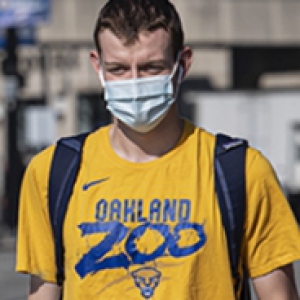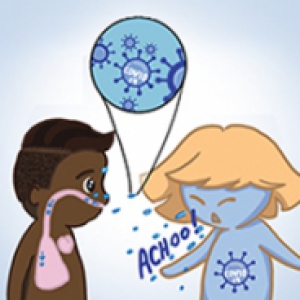Department of Medicine

Friday, August 14, 2020
MicroRNAs, tiny molecules that circulate in the bloodstream, could be the key to how diseases from pulmonary hypertension to cancer spread throughout the body, a new study led by Stephen Chan has found.

Tuesday, July 14, 2020
Expert faculty members in the University of Pittsburgh’s School of Medicine are at the helm of a new COVID-19 Medical Response Office, which will oversee the implementation of a virus monitoring program on all five Pitt campuses. The program will direct the University’s COVID-19 testing, contact tracing, reporting procedures and isolation and quarantine protocols.

Monday, July 6, 2020
When it comes to data on COVID-19, there are disparities between what information states are recording and reporting—especially when it comes to race. Utibe Essien, an assistant professor in the School of Medicine, explains why racial data is so important to track.

Monday, June 29, 2020
Sponsored by the Department of Medicine Office of Diversity and Inclusion, a recent book club welcomed nearly 100 people to discuss the bestselling Ibram X. Kendi book. See what their next pick is and how to join.

Wednesday, April 15, 2020
The symptoms, treatment and other medical information about the novel coronavirus can be difficult for some people to understand. Six Pitt Med students led the production of an illustrated guide written in plain language to help.

Monday, March 30, 2020
A group of Pitt medical students have started sprawling volunteer efforts to help children and adults in need, both virtually and door to doorstep.

Thursday, February 6, 2020

Wednesday, May 22, 2019
Walid Gellad, associate professor of medicine and health policy and director of Pitt’s Center for Pharmaceutical Policy and Prescribing, is using machine-learning algorithms to predict who is at risk of opioid misuse and overdose.



